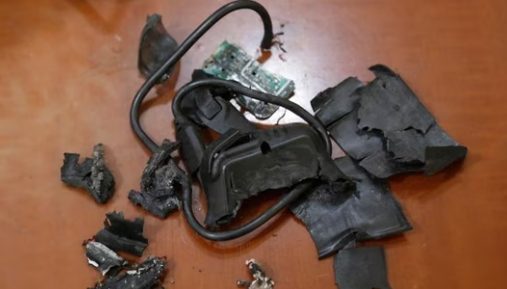In an extraordinary revelation, sources close to Israel’s Mossad have uncovered details of a covert operation in which the country’s intelligence agency successfully used a front company to sell explosives to Hezbollah, the militant group based in Lebanon. The operation, which involved setting up a shell company in a third country, was part of a broader strategy to infiltrate and sabotage Hezbollah’s weapons supply chain.
The mission, believed to have taken place over the last few years, started with the creation of a fake business that ostensibly dealt in industrial equipment and high-grade explosives. This front company was carefully designed to appear legitimate, establishing relationships with various Middle Eastern and European buyers, including those connected to Hezbollah.
According to intelligence experts familiar with the case, the Mossad agents behind the shell company embedded explosives in shipments disguised as industrial materials. These explosives, rigged with delayed triggers, were sold directly to Hezbollah’s arms procurement network. This allowed the Mossad to remotely monitor and even sabotage the explosives once they reached Hezbollah-controlled areas, ensuring a delayed detonation or failure at critical moments.
The bold tactic highlights Mossad’s adaptability and determination to disrupt Hezbollah’s military capabilities while minimizing the risk of direct confrontation. Israel has long sought to weaken Hezbollah’s arsenal, particularly its missile and rocket stockpile, which poses a significant threat to Israeli civilians and infrastructure.
This operation also underscores the complexity of modern espionage, where intelligence agencies like Mossad are turning to unconventional methods to achieve their objectives. By infiltrating Hezbollah’s arms procurement network, Mossad was able to gather vital intelligence on the group’s operations, networks, and external suppliers.
Experts suggest that the covert mission may have broader implications for the ongoing conflict between Israel and Hezbollah. Beyond striking a psychological blow to the militant group, the operation could complicate Hezbollah’s efforts to procure high-quality weapons in the future, making them more cautious and potentially disrupting their supply lines.
While Israel has declined to officially comment on the specifics of the operation, some reports suggest that it involved cooperation with international intelligence agencies and relied on cutting-edge technology to monitor the explosive shipments.
As tensions continue to simmer between Israel and Hezbollah, this operation serves as a reminder of the shadow war being fought through espionage, intelligence, and covert operations, a struggle that will likely continue for years to come.








 India
India












